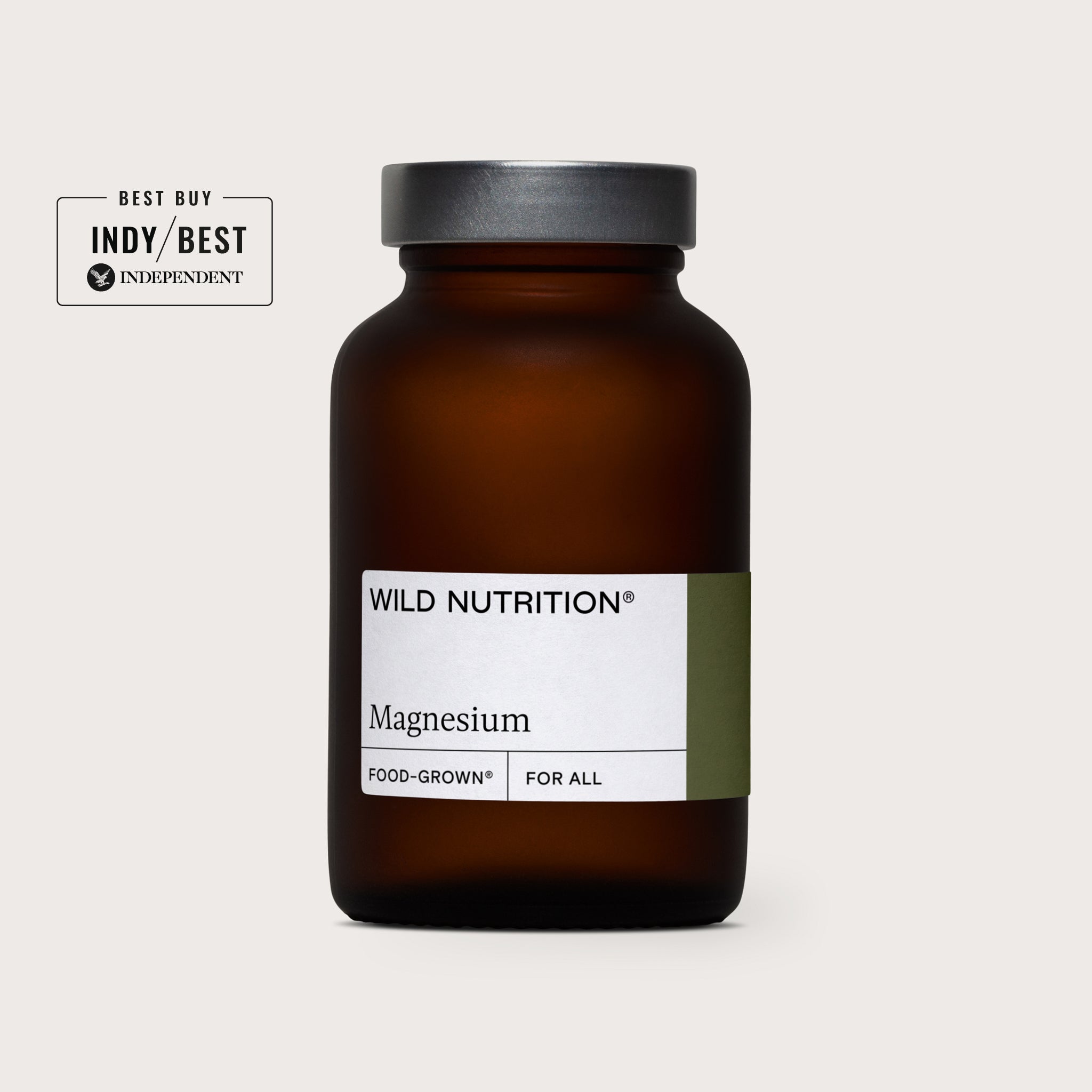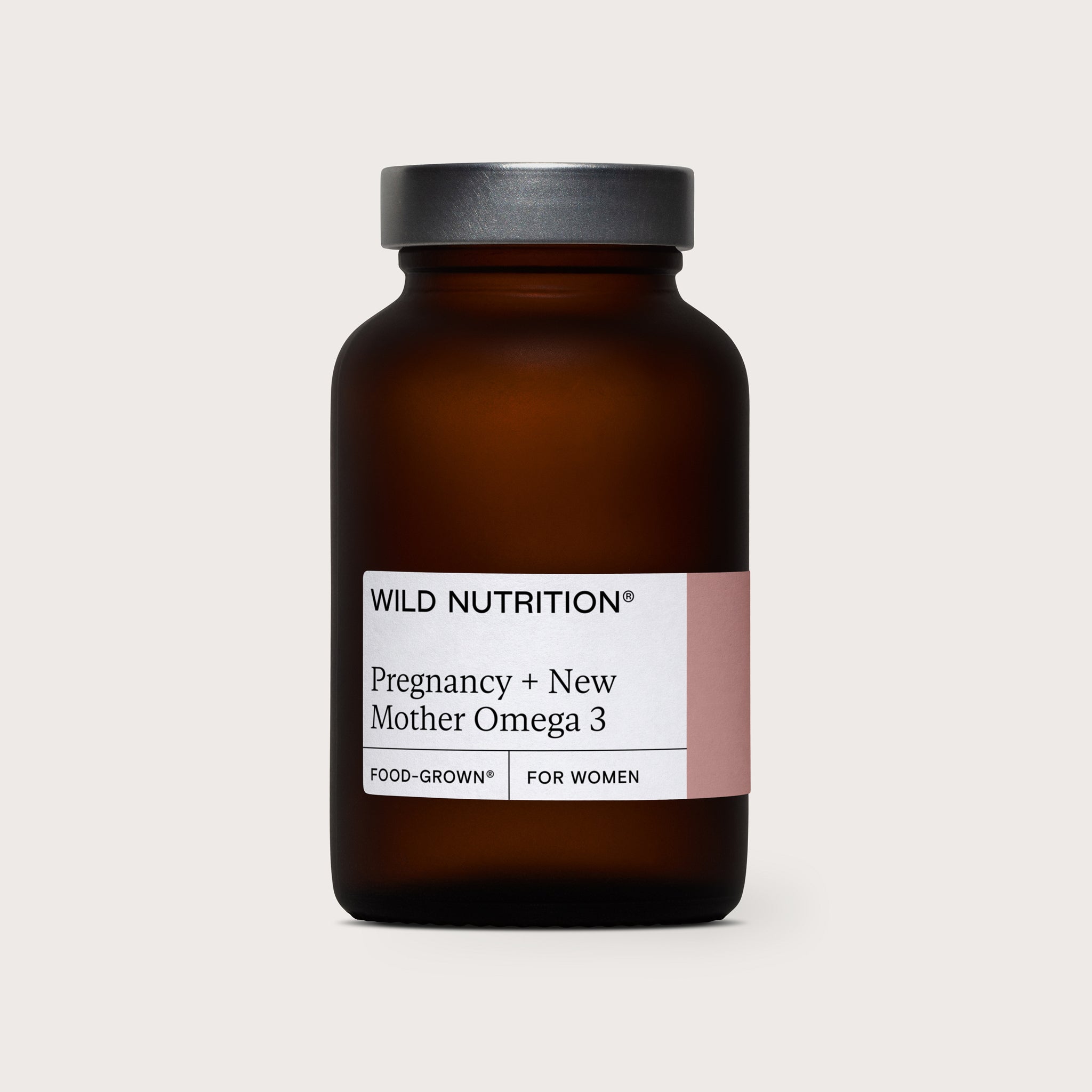
Why is Vitamin D important?
BY ISABELLE NUNN, Head of Nutrition at Wild Nutrition.
Vitamin D has the potential to influence the expression of over 150 genes, playing a pivotal role in our immune systems and supporting our bodies as they navigate the twists and turns of life. It's also an essential for many demanding stages of life when the body undergoes intense transformation, including childhood and pregnancy.
Immune system support
Scientific research shows that Vitamin D plays a crucial role in strengthening and protecting the immune system. It's become especially key in recent years as research shows it's a key nutrient for the body's defences when tackling viral infections, but also plays a role in respiratory health.
While it's particularly useful for immune support in the winter months, Vitamin D is needed all year round for a healthy inflammation response, maintaining normal body processes and plays a supportive role for those who have autoimmune diseases.
Bone & teeth health
When it comes to bone and teeth health, Calcium receives all the attention for strength and maintenance, but Vitamin D is just as important as it's needed for Calcium to be absorbed properly. If you have any history of bone density issues, then we recommend taking a closer look at your Vitamin D levels.
Children to teens
You might be surprised to learn that Vitamin D levels during childhood and teenage years have an impact on how well the immune system will function in adulthood. Children's and teenage immune systems are different to those of an adult because they are still developing. However, in the UK, children's Vitamin D levels have been decreasing, particularly among boys, making it all the more crucial for supplementation.
There have also been clinical studies linking vitamin D deficiency to increased rates of infections and autoimmunity. For example, one study showed that babies had a lower risk of developing atopic eczema in their first year if their mothers took 1000 international units (IU) of Vitamin D a day from when they were 14 weeks pregnant until birth. Children and teens need to take the right dose of Vitamin D, and we cover those official guidelines in the blog How much is enough?
As teens tend to shift from playing outside with plenty of sunlight exposure to more indoor-based activities, e.g. increased computer or TV screen use, and spend longer hours doing homework, deficiency is common.
Children and teens who don’t eat oily fish or dairy products won’t be getting their potential 10% access to Vitamin D-containing foods, leaving intake down to sun exposure and supplementation.
Fertility, pregnancy & breastfeeding
Vitamin D is as important for a woman’s health in these life stages as it is for their baby. Biologically speaking, Vitamin D has a hormone-like action in the body, key to maintaining a healthy immune system as their baby develops in the womb, through to the early stages of breastfeeding. Babies will need this key nutrient to grow their skeleton and create the ‘blueprint’ for their first teeth and later adult teeth.
Vitamin D is officially recommended to be supplemented in these life stages. For more tips on getting your levels checked and advice on how much to supplement, see our blog How much Vitamin D is enough?
Perimenopause & menopause
In perimenopause and especially menopause, oestrogen levels naturally decline, causing issues for bone density (strength), making Vitamin D especially important with its role in supporting Calcium levels. If you're navigating this chapter, we recommend taking a closer look at your Vitamin D status.
If you're unsure you're getting sufficient Vitamin D from your diet, we invite you to book a free 15-minute consultation with our expert team of Nutritional Therapists. We're here for you, for every chapter of life.












